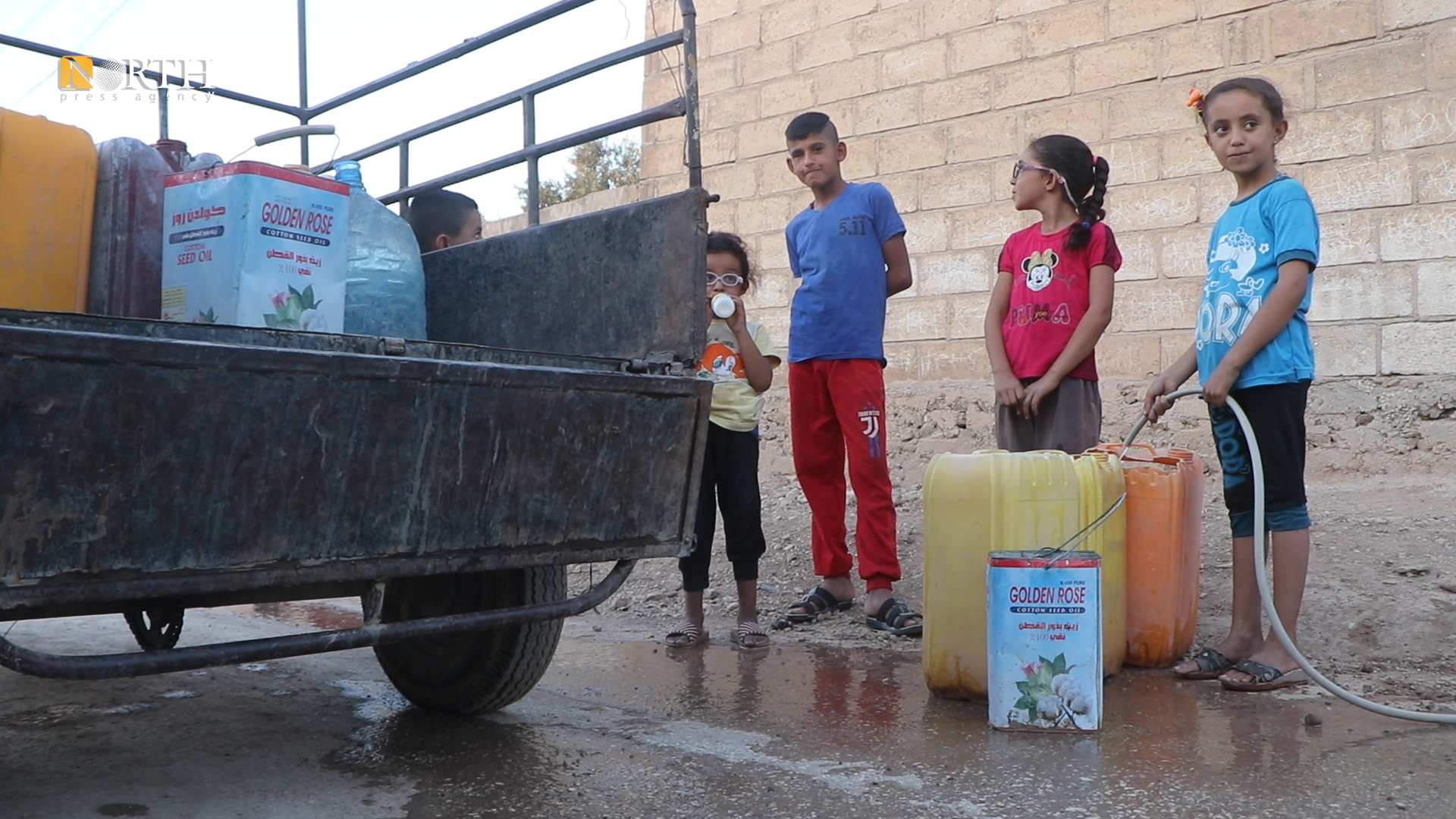
QAMISHLI, Syria (North Press) – As cholera is rapidly spreading across Syria, people, particularly, those in the areas of northeast Syria are the most vulnerable due to acute water crisis caused by Turkey and curbed cross-line aid access by the government, Human Rights Watch (HRW) said on Monday.
HRW added in a report that some number of humanitarian workers at several humanitarian organizations across Syria stressed that effective response in facing the cholera spread has not been reached due to several major factors including acute water crisis, lack of medical supplies and lack of consolidated information from all regions of Syria.
If water crisis in northeast Syria is not addressed, “this devastating cholera outbreak will not be the last water-borne disease,” Adam Coogle, deputy Middle East director at HRW, said.
Turkey has aggravated the water crisis that impacted areas held by the Autonomous Administration of North and East Syria (AANES) by seizing water of the Euphrates River and banning water flowing from Alouk water station from supplying the city of Hasakah and its countryside.
Coogle stressed, “Turkey can and should” stop exacerbating the water crisis.
Alouk water station, which lies in the city of Sere Kaniye (Ras al-Ain) in the northern countryside of Hasakah, is the only water resource feeding Hasakah and its countryside. The station is controlled by Turkey and its affiliated armed Syrian opposition factions, also known as Syrian National Army (SNA).
In 2019, Turkish forces and the SNA factions launched the “Peace Spring” military operation where it occupied Sere Kaniye and its countryside.
Turkey and the SNA factions have cut off water coming from the station to Hasakah and its countryside 27 times since then.
Additionally, Turkey has been holding water of the Euphrates within its territory since 2020 amid warns that a humanitarian catastrophe is to face the region soon especially with the river declining to record levels.
Euphrates River recession due to Turkey’s seizure provides a proper environment for reproduction of bacteria and disease-causing viruses.
During the past two years, the level of the Euphrates has fell to unprecedented records, after the amount of water flowing from Turkey towards Syria has decreased to below 200 cubic meters per second, which is less than half the amount agreed upon between the Syrian and Turkish governments in 1987.
On October 18, the UN attributed the rise in cholera cases in Syria to severe decline in Euphrates River water level, drought-like conditions, and people recourse to unsecured water sources.
Speaking of the government restrictions imposed on aid arrival to the AANES-held areas, the HRW report noted due to the “longstanding” measures by the government on aid deliveries, the areas in northeast Syria are left to be inflicted, especially with cholera outbreak spreading in the region in light of acute water crisis and poor sanitation system.
One aid worker told the HRW that humanitarian supplies to northeast Syria areas have been delayed similar to those promised to be delivered to the area during the coronavirus outbreak in 2020.
Coogle said that after a decade of war, now Syrians “are struggling to meet their most basic needs.”
What makes the situation even worse for people in north and east Syria are the UN reauthorizations of only one border crossing Bab al-Hawa with Turkey, aggravating an area with about three million people including 150,000 refugees and Internally Displaced Persons (IDPs) residing in camps, tolerating soaring prices and dire economic conditions.
In June, the UN Security Council approved to extend lifesaving aid deliveries into northwest Syria through Bab al-Hawa border crossing for a further six months.
Since July 10, 2020, Bab al-Hawa has been the only crossing kept open to UN aid based on the resolution 2533 (2020), while the use of the others was curtailed.
In July 2014, the UN Security Council adopted the Resolution 2165 which authorized the UN to deliver cross-border humanitarian aid to Syria through four crossings al-Ramtha crossing with Jordan, Bab al-Salam and Bab al-Hawa with Turkey, and al Ya’rubiyah (Tel Kocher) with Kurdistan Region of Iraq (KRI), without the consent of the Syrian government.
The Kurdish-led AANES has been calling on the Security Council since 2019 to reopen al-Ya’rubiyah border-crossing, so humanitarian aid can be delivered to people in need.
Prior to the closure of al-Ya’rubiyah that happened due to successive Russian-Chinese vetoes, 103 medical facilities were receiving aid across the crossing to northeastern Syria according to a report by UN Secretary-General Antonio Guterres to the Security Council in the beginning of 2020.
